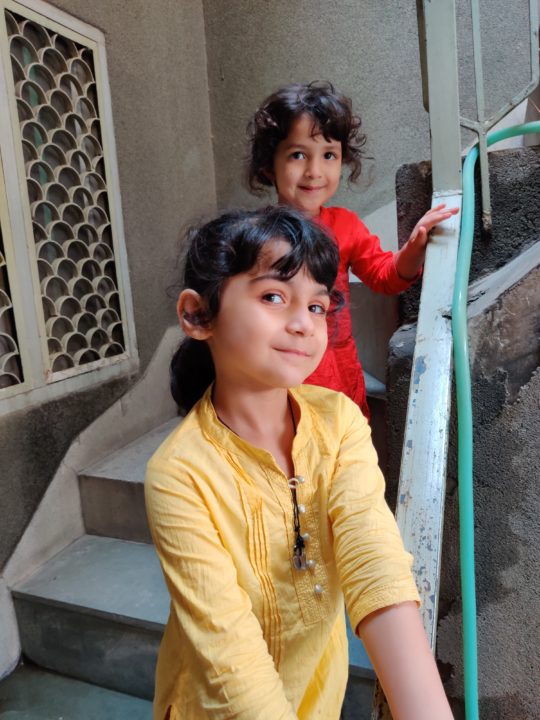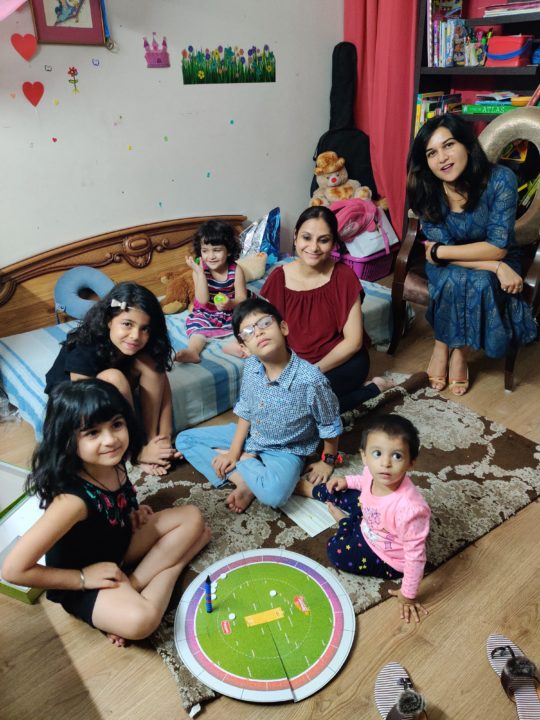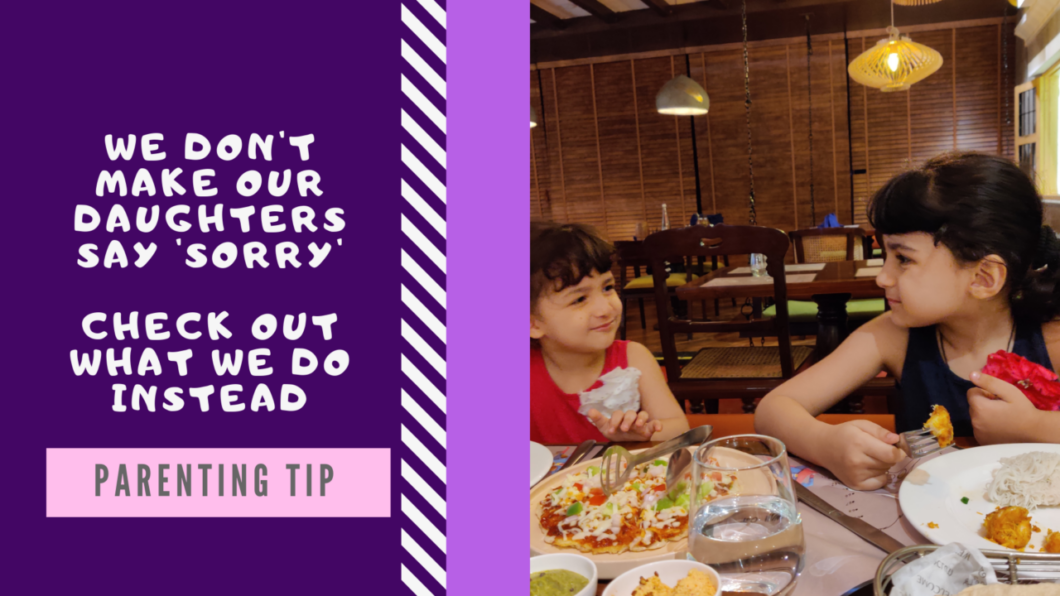Meaning of Sorry needs to be taught to kids to make them empathize with people around.
We don’t make our daughters say ‘Sorry’!
In this post you will find what we do instead.
Time and again I have seen and I’m too sure you must have too… a child runs past and almost knocks down another child, screaming an unapologetic ‘Sorry’ and runs off to continue playing.
Children are often taught to say ‘Sorry’ way before they are capable of feeling sorry for any of their actions without focusing on teaching them the real Meaning of Sorry . Does this sound familiar to you?

The truth is that this act of saying ‘Sorry’ appeases everyone since it’s a polite thing to do.
However my husband and I think pretty differently about this.
For us teaching our kids to be empathetic towards others in order to teach them the real Meaning of Sorry is much more important than pushing them to say ‘sorry’.
Here’s why we don’t make our children say ‘sorry’ all the time:
Before a child turns 4, her brain is egocentric and the world revolves around her. It’s only after 4, a child develops the ability to understand empathy.
A child must be taught subtly that others feel differently than they do.
By teaching the children to say sorry as a response to anything wrong they do, we teach them that every action of theirs has an equal impact.
The word ‘Sorry’ according to most of us means to make the child regret for what she has done ( which isn’t the case often, and is perfectly normal in a typical case).
By teaching children to say ‘sorry’ we are indirectly informing them that they don’t really need to do anything more to fix whatever wrong they did.
Now the fact is that we can’t let a child get away with doing anything wrong or hurting someone emotionally, just because a child won’t understand the real meaning of the word ‘sorry’.
I’m sure by now you must be thinking of what to do instead.
Read: FUN MEMORIES ARE WHAT YOUR CHILD’S MEMORY BANK NEEDS
Read: POST DELIVERY | DO YOU FEEL LIKE A STRANGER IN YOUR BODY?

We teach our kids the real Meaning of Sorry like this:
We teach our children to look for emotional cues in others:
When our children accidentally or intentionally hurt another child, we stop their behaviour immediately. We then point out how their action impacted the other child by saying something like- “That must have hurt him, look at his face. He is crying! “.
Our children learn that their actions have consequences by pointing out the other child’s feelings.
We teach our children to respond:
We then ask our children to check on the other child by asking him – “Are you ok?”. This is the first step to making amends and acknowledging the mistake.
You can also teach your child to ask empathetic questions like – “May I help you? “, ” What may I do to make it better? “.
We teach other children to offer help instantly:
We ask our daughters to instantly take an action to help the person they offended or hurt.
Like if our children break someone’s block creation, we ask them to help the other child fix it.
In case our children hit someone with a stick, we would ask them to get ice for the other child and sit with him .
This won’t just make a child feel more empathetic towards others but would teach important social skills.
In case your child feels she wasn’t helpful, then your child would naturally be motivated to do the right thing next time.
Lead by example:
We model saying ‘sorry’ when it’s appropriate even if we don’t require our children to say sorry.
We do so because using words like ‘sorry’, ‘thank you’ and ‘please’ is a social skill that everyone must be able to do. Your child will naturally pick it up even he or she is old enough to understand true empathy.
Eventually your child will develop the skills needed to be kind, helpful and gentle to others.
Get on a discovery session With Life Coach Preet and discover new horizons. Reach me on Instagram to book one to one session or a group session.
Much love,
Preetjyot Kaur
??????????????? ?????????? ( ?????????) ????? ?????????? ??????????? EXPERT (???),???? ????? ??? ????, ????????? ????? & COACH FOR TEACHERS
If you found this post helpful or if you know of someone who could benefit from this, please go ahead and share this.
Feel free to personally contact me on my Instagram account or at preetjyotkmehra@gmail.com for any personal support.
Also, don’t forget to share your views in the comment section below
